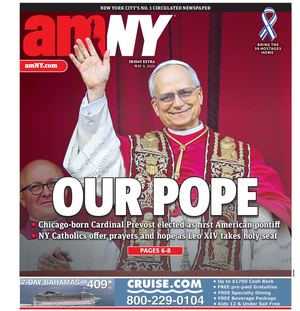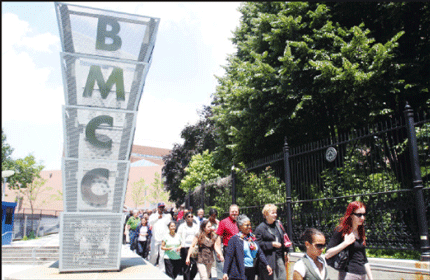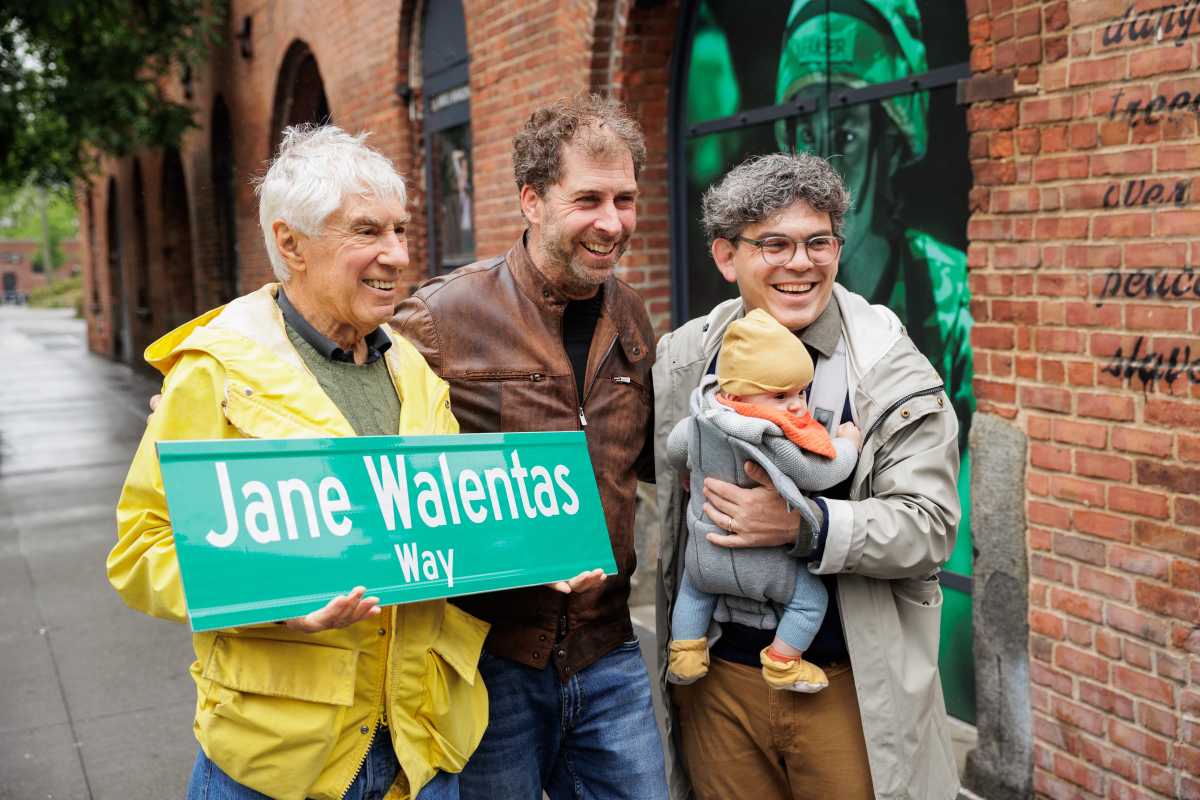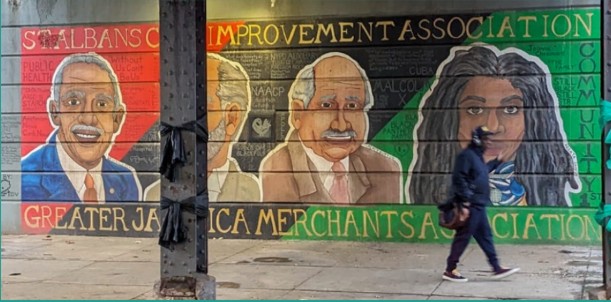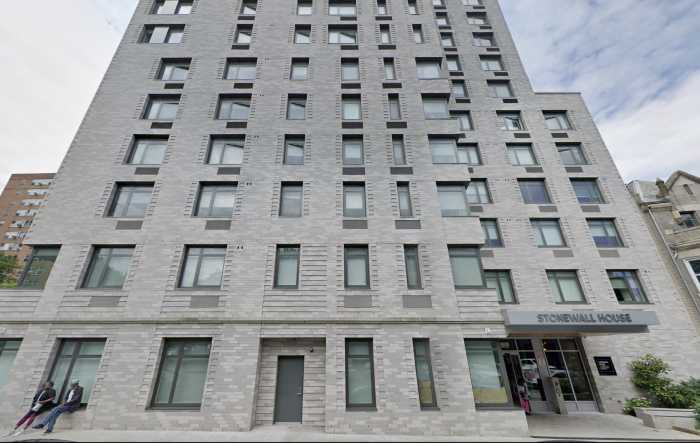By Julie Shapiro
As the clock ticks down on the city’s budget negotiations, it looks less and less likely that the City University of New York will get the money it needs to rebuild Fiterman Hall, the classroom building damaged on 9/11.
“No progress means negative progress,” City Councilmember Alan Gerson said Wednesday, five business days before the Council must vote on the budget. “The closer we get to the deadline without an agreement, the less likely it is [that the city will agree to give the money]. That would be a disgrace.”
Gerson was more hopeful earlier in the week. The city budget is due June 30, but in recent years it has been finalized a few days before the deadline.
Unless the city gives CUNY $71.2 million for Fiterman Hall in this year’s budget the project will face further delays and the new building will not open on time in fall 2011, said Iris Weinshall, vice chancellor of CUNY.
Weinshall, who was transportation commissioner under Mayor Bloomberg, testified before a packed City Council hearing last Friday, where leaders of the Borough of Manhattan Community College, a CUNY school, demanded that the city pay its fair share to rebuild Fiterman Hall.
“This is not a luxury item,” B.M.C.C. President Antonio Perez said of Fiterman Hall. “It is a necessity.”
CUNY and the city Office of Management and Budget are negotiating the funding, but the discussions are not intensive enough to satisfy CUNY.
“We’re prepared to work day and night at the table,” Weinshall said last Friday. “Those levels of negotiations have not taken place so far.”
Jason Post, a spokesperson in the mayor’s office, would not comment on the status of the negotiations. “We’re aware of their concerns and we will seek to address them,” he said, though the mayor’s office has repeatedly said the city has put in enough money already.
As negotiations between CUNY and the city inched along, B.M.C.C. staff and students used Friday’s hearing to voice their frustration over losing a classroom building on 9/11 and waiting 10 years — or more — for its return. Next fall, B.M.C.C.’s enrollment will top 20,000 students, far more than can fit in the school’s main building at 199 Chambers St., which was built for 8,500. Fiterman Hall housed 42 classrooms and 30 computer labs, in an office building B.M.C.C. had nearly finished renovating on 9/11.
Before an audience of 250 at the City Council hearing, Perez quoted Yogi Berra, saying the sight of Fiterman Hall still standing is like “déjà vu all over again.”
“This institution has suffered once [on 9/11] and it is suffering again,” Perez said.
B.M.C.C. opened its doors as a command center for rescue workers after 9/11, and now it’s time for the city to support the school, he said. The 16 classroom trailers along West. St. were supposed to be temporary, but now they’ve become a daily reminder of 9/11.
“B.M.C.C. is the only college in the entire nation that is the victim of a terrorist attack,” said Councilmember Charles Barron, who led the hearing along with Gerson and drew rousing applause and cheers. “Don’t talk about 9/11 and not talk about the students at B.M.C.C.”
Bob Bauer, a technician in the science department, called the trailers a “shantytown.” The trailers are too noisy for learning and have virtually no security, not to mention poor ventilation.
While the Fiterman construction project has much of the $325 million it needs, the missing city contribution is an essential piece, Bauer said.
“It’s like having a wedding,” he said, “and you’ve got the band, the hall, the photographer and the caterer, but you decide not to pay for the minister. We have the state funds, but if the city cuts this, it’s going to paralyze the rebuilding process.”
By CUNY’s account, the city owes $71.2 million to the project, and without the city funding, a new building will not rise. CUNY has enough money to decontaminate Fiterman Hall of 9/11 toxins and mold — work that is currently underway — and also has enough money to demolish the building. But once the building comes down in the first quarter of next year, there won’t be enough money to start construction of the new 14-story structure, Weinshall said.
The state has allocated $91.2 million to rebuild Fiterman Hall, but CUNY cannot draw on that money unless the city matches it dollar for dollar. So far, the city has only allocated $20 million, and even that cannot be drawn down until July 2010.
The city did not attend the hearing at City Hall but Post, spokesperson for the mayor, said the city contributed an additional $60 million to the project, which was supposed to come from the Federal Emergency Management Agency but ended up coming out of the city’s budget. The city received a lump sum from FEMA for 9/11 recovery, which included $60 million for Fiterman, but the city spent that money on other projects and replaced the $60 million with money from the city’s general budget, Post said.
The city counts the FEMA money toward its match of state funding, but CUNY and the state count the $60 million as “unmatchable,” meaning that it does not lessen the amount the city needs to contribute. Other funds that fall into this category are the $62.7 million in insurance funds, $15 million from the Lower Manhattan Development Corporation and $5 million from the 9/11 Fund.
Barron, who chaired the hearing, was tired of the city’s finger-pointing, which he said is too common at budget time.
“We’re not going to be flipped back and forth like a ping-pong ball,” he said. “We’re not looking to blame anyone. We just want Fiterman rebuilt.”
If the city does not come through with the funding, the rebuilding of Fiterman Hall will almost certainly be delayed, said Weinshall. The state Dormitory Authority, which is coordinating the project, requires all funding to be in place before bidding out contracts.
CUNY wants to bid out $202 million in core and shell contracts between this August and January 2009 and another $75.4 million in fit-out contracts before July 2009. Under a two-and-a-half-year construction schedule, students could start using the building for classes in 2011, but without the full funding in the bank, those contracts and the rebuilding would have to wait.
The cost to rebuild Fiterman Hall has gone up each year, as construction costs rise citywide. But Weinshall said the school recently shaved off $15 million in contingency costs, bringing the total price tag to $325 million and slightly reducing the contribution needed from the city. .
Before Friday’s hearing, Christina Gonzalez, a B.M.C.C. student, said she sees the effects of not having Fiterman every day. She has trouble finding available spaces in the early childhood education classes she needs to graduate, and the daytime classes fill quickly, leaving Gonzalez, 34, no choice but to take the classes at night or take daytime classes that she doesn’t really need.
“It’s frustrating,” she said. “The classrooms are packed almost desk to desk.”
Linda Wadas, a librarian, sees students cramming into B.M.C.C.’s library, where the close quarters cause some students to complain that others are disturbing their concentration. In study cubicles and in hallways, students fall asleep or talk to friends, having no other place to relax.
The biggest complaint from the faculty — besides the trailers — was the lack of office space. Shirley Rausher, an adjunct English professor, shares an office with 64 other adjuncts. They’re not all there at once, but during the changeover between day and evening classes, it gets hectic and Rausher often has to leave. She is committed to staying at B.M.C.C., where she said she gets to teach highly motivated students, but she and other professors said faculty will tire of the lack of privacy and could decide to teach elsewhere.
When Joyce Moorman, a music professor, arrived at B.M.C.C. in 2003, she found herself sharing not only an office but also a single desk. She is now in a slightly larger office, still shared, but it is not big enough to meet with groups of students. During her office hours, she usually brings students to any available space she can find in the building — but then students who drop by to see her don’t know where to find her. To top it off, Moorman teaches in a classroom she is certain was once a closet: It has no windows and the temperature regularly tops 80 degrees.
“The situation is impossible,” she said.
Julie@DowntownExpress.com
